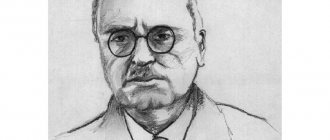Love is an incredible thing. It has the power to change the course of our lives. The various types of love are probably the most powerful emotions we will ever experience in our lives, overpowering fear and hatred. But why do we fall in love with someone else, a stranger to us?
Love can make us happy or incredibly sad. This feeling will shape our lives. The love we have for our family, our friends, and even our pets has a huge impact on us.
But romantic love is a completely different game. It can be the most confusing emotion you've ever experienced, with exciting ups and downs.
Why do we fall in love
If you've ever fallen in love, you probably know this feeling all too well. This can leave you feeling overwhelmed and unsure.
Love can lead you to make decisions that you would never have made if you weren't under the influence of those powerful love hormones.
This feeling can also make you happier than ever before.
Love changes and develops over time and feelings become mature. The first days of love can be exciting but stressful. But as you find long-term love, it's less about extreme emotions and more about mutual trust, respect, and caring for each other.
What happens when you break up?
Photo: unsplash.com
During separation from a loved one, the entire established physiological cycle of hormones and their reactions suddenly ends. This disrupts the concentration of substances in the blood and causes feelings of anxiety and dissatisfaction, which can lead to apathy. Additionally, scientists believe that a breakup activates certain brain chemicals that can lead to feelings of actual physical pain.
A broken heart is not a fantasy of medieval romantics, but a confirmed medical syndrome called “takotsubo”. This malfunction of the heart muscle occurs due to strong experiences and can even lead to death.
It’s normal to suffer and feel empty at first after breaking up with your loved one; the main thing is to not let the sadness develop into depression.
It turns out that loving and being loved is not only pleasant, but also good for health, so we boldly succumb to the influence of spring and become active, productive and happy.
“Love is stronger than all passions, because it affects the head, heart and feelings at the same time”
Lao Tzu
Understanding the reasons we love each other and the underlying science behind it can help us maintain a sense of perspective when we're caught up in the whirlwind of romantic love. Especially when we have just met someone, or when the relationship seems to be going wrong.
Love is a wonderful, largely inexplicable thing, and we can't be logical all the time. That wouldn't be fun at all.
Sometimes we just need to feel, not think or try to rationalize everything.
But understanding the reasons why you feel the way you do can help keep you on your feet.
This may help you understand why it feels like the world has stopped existing when you lose romantic love, or like you can't live without the object of your affections.
This feeling can also help you get clear on what exactly you want in a romantic relationship and take control of your hormones by learning who will truly be your ideal partner in the long run.
Understanding the reasons why humans as a species fall in love can help you understand the role love plays for you personally.
If you've been trying to understand why you fall in love, read on for some explanations.
Infatuation and love: main differences
To conclude our conversation, let’s add a little clarity. Take a look at this table and think about which description is closest to what is happening between you and the girl.
| Love | Love |
| based on physical attraction | not based on physical attraction |
| short-term | long-term |
| sees perfection in a person | accepts flaws |
| full of high expectations | happy with what I have |
| jealous | knows how to trust |
| easy to offend | knows how to forgive |
| makes you irrational | calms down |
- Author: Maria Minaeva
Evolutionary reasons why we fall in love
Yes, it's all about survival. Love, from an evolutionary point of view, contributed to the survival of our species. Nothing happens for nothing. If love exists, then there are reasons for it.
As our bodies have developed, our ability to love has evolved
It is widely believed that it is our ability to love each other or develop strong pair bonds that has made us such a successful species.
In case you haven't noticed, humans have dominated our beautiful planet, for better or for worse.
We humans have very large brains inside very large, thick skulls. But when we descended from the trees into the African savannah and began to walk on two legs, our pelvis changed shape and became smaller.
This in turn meant that women needed to give birth to smaller and less developed children in order to tell tales and feed those children into adulthood.
When a human child is born, he is absolutely helpless.
A newborn giraffe runs, several hours after birth. He is able to run away from danger. But a human child needs years of devoted love, care and protection to survive.
This means that human babies are more likely to survive if they have two parents rather than one.
Love is what keeps these parents together, even when things get rocky, as they inevitably will.
The love we have for our partners, as well as our children, is what forms family units and means that we work together to raise children and ensure their maturity.
It may not sound romantic, but most people agree that the love we are able to feel for each other is a huge part of why humans are so successful.
Our big brains mean we can feel big emotions
Of all the animals on planet Earth, we have the largest brains. And it seems that these brains mean that we are able to suppress emotions.
We have the most advanced language skills, and we are also much more likely than any other mammal to kill each other, as unpleasant as that may sound.
The thing is, as a species, we tend to go all out when it comes to our emotions. We don't do things by halves. We have evolved to be capable of extreme hatred and passionate love.
What causes falling in love
It may seem strange, but people fall in love with a certain person for a reason, but due to specific circumstances. Let's take a closer look at what causes this.
From a physiological point of view
When a person feels sympathy for another, he begins to feel changes in his behavior and feelings. A feeling of euphoria, lightness, and absolute happiness appears. It is not surprising that such processes are caused by chemical reactions occurring inside the body:
READ How to make a guy fall in love with you and ask you to date
- Release of the hormone dopamine. Responsible for the psycho-emotional state, causes a feeling of satisfaction, the desire to achieve the goal. The same applies to the object of love: if you like a person, dopamine is released, due to which you want to continue communication and strive for this.
- Release of the hormone adrenaline. It is responsible for increasing energy and mental activity. But when his concentration increases, the lover begins to experience fear for the relationship, anxiety, and worry. He anxiously awaits a response to his invitation to meet, worries during the first dates, and is shy.
- Release of the hormone testosterone. A man meets a pretty girl, he likes her appearance, testosterone is produced in the body, thanks to which the mood improves, the world seems brighter and kinder. Under the influence of this hormone, partners see only positive qualities in each other, artificially maintaining relationships at the initial stage.
- Hormones vasopressin and oxytocin. Developed when a couple is in a serious relationship. They dull the feeling of attraction to other people of the opposite sex and instill confidence in relation to a permanent partner.
In total, there are 12 hormones responsible for love. Based on them, scientists are struggling with the formula by which one can fall in love and fall out of love. But they have not yet achieved success in this matter.
Psychological component
People fall in love with each other not only for physiological reasons; psychological attraction is also not in last place. The main psychological points include the following:
- Similar interests. If people have the same hobbies, then there is a high probability that a long-lasting union will result. Common values, the same life experiences, level of attractiveness and age can strengthen a couple. We, contrary to popular belief, do not fall in love with our opposite.
- Similarities with parents. Views on family life are formed in childhood. A person gets used to living in his own family and, on a psychological level, looks for a partner who can recreate the same lifestyle and way of life in the home. If the type and character coincide with the parents, then the chances of a relationship increase greatly.
- Smell. A partner of the opposite sex is attracted to a body odor that is pleasant to him. It is clear that we are not talking about perfume and deodorant now. In addition, during the period of ovulation, a woman may be attracted to a man with a large amount of testosterone.
- Behavior. The girl, who is open to relationships and communication with young people, behaves relaxedly, showing this to the guys with gestures and body language. This demeanor makes her more attractive and desirable to potential partners.
- Height. If a woman is attracted to tall young men, then short guys will not be considered for relationships in principle.
- Pastime. A person generally falls in love when he is interested and pleasant in spending time with another. Even if sympathy arose initially, but the two of you are bored and sad, have nothing to do with each other, the conversation doesn’t go well, then the relationship will end before it even begins.
- Proximity of residence. An important factor, since distance will not benefit any couple who are just starting to communicate. If you live close, it means you will have the opportunity to see each other almost every day, have a pleasant time together, get to know your partner, and develop relationships. If you live far away, for example, in different cities, you will get stuck at the same level, so over time, interest will begin to fade.
- Smile. People are more willing to be drawn to positive and cheerful people than to those who are always gloomy and dissatisfied. A smile is attractive, but despondency is repellent.
READ How to stop loving someone you love very much: advice from a psychologist
According to psychology, these reasons influence whether people pay attention to each other or pass by without even noticing.
Spiritual Explanation
Partners must be spiritually close, have similar views on the moral side of life and the same worldview. Thus, a truly believing Orthodox person who tries not to break the commandments and lives according to his conscience will never be happy next to a dishonest partner who bypasses the church a mile away and does not observe the basic laws of Orthodoxy.
For the same reason, people of different nationalities very rarely come together, since they have different views on life and completely different concepts about relationships within the family and its way of life.
If the partners are of the same nationality and religion, their spiritual and moral components coincide, then in this case falling in love occurs, and the union promises to be strong. But there are always exceptions.
“I don’t know greater happiness than being with you all the time, without interruption, without end”
Franz Kafka
This may play a big role in why we can create partnerships that can last a lifetime and we can feel like we would do anything for love.
It all depends on hormones
Love being all about hormones isn't exactly a romantic concept, since attributing it all to evolution and reproduction isn't what Valentine's Day cards are made of.
None of us want to admit that how we feel about the person we want to spend the rest of our lives with depends on hormones, do we?
On the other hand, when you're going through the pain of a breakup, the idea that it's just a withdrawal of the hormones your brain released when you were around that person can be quite comforting.
But without wanting to ruin the magic of it all, long-term, committed love is characterized by two hormones: oxytocin and vasopressin. These are the hormones that motivate us to commit to a long-term relationship with a romantic partner.
If you are suffering from unrequited love, remind yourself that love is essentially hormones that will eventually begin to leave your system.
The role of hormones
Why we fall in love with a certain person depends largely on physiological processes. At this moment, the body produces the happiness hormone dopamine, a neurotransmitter that causes a feeling of satisfaction. Thanks to him, a person’s attention is completely switched to the object of adoration at the start of falling in love.
Adrenaline joins dopamine, and it is produced in large quantities. This hormone increases arousal and activity. A side effect is anxiety. This is the same pleasant anxiety that every lover experiences while waiting for a response to their feelings.
Other hormones (oxytocin, vasopressin) involved in the formation of a love relationship between people “come into play” after some time. They are responsible for fidelity, form monogamy, dulling attraction to other potential partners.
There are 12 “love” hormones. Experts are trying to derive a universal formula for love that can evoke and maintain feelings in a person. So far, scientists have not received significant results.
Social reasons why we fall in love
So, we looked at the more physical reasons why people began to love each other.
Now let's look at a few social reasons that play an important role in motivating us to find someone with whom we can share our lives.
This is something that we are usually aware of, that we seek and value, as opposed to hormonal things that often go beyond the surface.
We want company
We are sociable creatures, and while many of us enjoy being alone from time to time, most of us need to seek the company of other people.
A romantic partner is someone you can spend your life with. Someone who will always be there for you. Someone you can talk to and hug.
Why we fall in love: we need support
If we are lucky, we will have a strong support network of friends and family to rely on. But there's nothing like having the support of a romantic partner.
A partner or spouse is someone you can rely on no matter what. The right relationships can give you the security and support you need to spread your wings and fly.
Is love a disease?
Photo: unsplash.com
A few years ago, before February 14, information appeared on the Internet that the World Health Organization recognized love as a mental illness. Despite the fact that this fact has become frighteningly popular, it turned out to be untrue: the WHO publishes a list of all diseases in the public domain and anyone can view it.
But a person’s inability to love is actually recognized as a deviation. It is called hypopituitarism and occurs due to a malfunction of the pituitary gland. In other words, the human body stops producing hormones that are responsible for emotional attachment and the ability to establish long-term relationships.
We fall in love because we think about practicality.
This is another not-so-romantic reason, but our desire to be in a relationship with someone and the love we feel for them can sometimes be motivated, in part, by practical considerations.
After all, a common problem is a problem divided into two.
Having a romantic partner in your life often makes financial sense and usually makes things like raising children and running a household much easier.
Don't underestimate the power of practicality when it comes to romantic attachment.
How does falling in love affect our body?
Photo: unsplash.com
It is no coincidence that the feelings that arise between people are called chemistry. Love is a real hormonal cocktail of five components, and not just walks under the moon, romantic letters and cute nicknames.
Dopamine begins to be produced in the body first - it is the one that “dulls” attentiveness and makes you see only good things in your partner. You can also make up for its deficiency during physical activity, so one of the surest ways to heal a broken heart is to go for a run.
Photo: unsplash.com
adrenaline is injected into the body of a person in love - this happens especially intensely in the first months after the start of a relationship, when before dating we experience slight excitement, and from every word of our companion - insane joy.
Adrenaline not only forces our body to be in constant tone, but also lowers the level of serotonin - the hormone of happiness. That is why love is not only euphoria, but also frequent experiences. “Why doesn’t he write about who he’s spending the evening with, is he really late at work?” – thoughts that seem irrational arise in our heads for a reason, but because hormones react and push us to do strange things.
Oxytocin begins to be produced a little later than other hormones - it is responsible not only for sexual desire, but also for the feeling of trust and security that replaces reckless adoration. Scientists also believe that oxytocin affects monogamy - the higher its concentration in both partners, the stronger the couple will be.
Endorphins are produced during direct physical contact - during kissing, hugging and sex - and bring feelings of well-being and security. But the influence of love on our body is not limited to hormones alone.
Scientists say that this feeling activates many new brain receptors and increases brain activity, lowers blood pressure, heart rate and even sensitivity to pain, improves complexion, minimizes the risk of mental illness and increases stress resistance. In addition, there are also negative consequences: for some lovers, the quality of sleep decreases and slight absent-mindedness appears.
Love also “awakens” genes that produce a certain type of protein - it improves immunity and fights infections, and this is very important now. We still do not recommend relying on love as the only precaution against coronavirus, but in tandem with hand washing and quarantine it will only bring benefits.
“Everyone becomes a poet from the touch of love”
Plato
It's nice to know the reasons why we love each other. But don't get so carried away by science and miss out on the incredible, borderline magical experience of falling in love.
Whatever the reasons we love each other, we do it passionately and we do it well, and you will never forget what it's like to fall head over heels in love with someone.
- What is the law of attraction and how does it work
- What is a midlife crisis and how to cope with it
Trying to protect yourself from failure
People who need strong feelings, those who cannot live without seething passion and love relationships, constant romantic dates, crave love adventures.
We can say that for them love is an addiction that requires a new “dose.”
These people experience breakups very painfully when the relationship can no longer continue. They have a fear of being abandoned and of no use to anyone, of being again left without support and understanding.
How to deal with the constant need to fall in love?
When your relationship has just begun its journey in life, you should not rush things. Don't rush to fall in love with the first person you meet. You should not idealize your soulmate, less imagination, in this situation it plays against you.
There is no need to confess your love to a girl after a couple of dates, this will not lead to anything good. And most likely, she will not believe in the sincerity of her intentions, because she is not ready for this yet.
A person cannot immediately reciprocate, it takes some time to get to know you better, to get used to the idea that you are now walking together hand in hand through this life.
After a large number of breakups and failures on the personal front, men develop distrust of the fair sex and problems with further building relationships. The same thing happens with girls. People withdraw into themselves, and this is very scary.
To avoid problems, you should not open up to a person immediately after meeting him; believe me, he will not appreciate it. Give your significant other time.
Falling in love, falling in love, love: the root is the same, but the meaning is different
People confuse many concepts out of ignorance and call things by other names. Let's look at such big words as falling in love, falling in love and love. After all, they mean so much to each of us.
Each person interprets the definition of falling in love differently, having felt in their own skin what it is. It all depends on the temperament of the guy or girl in love: some perceive their attraction to their chosen one rather coldly, others, on the contrary, are too emotional. If we approach the issue from a psychological point of view, we can give a more specific definition.
Falling in love is a strong emotional attachment to a person caused by various factors:
- pleasant appearance,
- similarity of interests,
- idealization of the chosen one.
Falling in love easily develops into love if events develop favorably. This is the first stage of a high feeling, at which either everything breaks off or undergoes a metamorphosis into something more sublime.
Falling in love is a quality inherent in some individuals, meaning the ability to easily get carried away and quickly forget the chosen one if the outcome is unfavorable. Whether this is bad or not is a controversial issue. On the one hand, it is easy for those in love to survive the lack of reciprocity, but on the other hand, it is very difficult to find true love in a series of attractive people of the opposite sex.
The concept of love is more extensive, because it includes not only attraction and emotional uplift, but also a deep feeling of affection. Psychologists emphasize that love presupposes awareness and self-sacrifice. Your ego fades into the background. A person cannot love two people at the same time, but it is quite possible to fall in love with several attractive people.
4. Attraction, hope and uncertainty
Once you have a clear picture of your love object, you become even more attracted to him or her, feeling both hopeful and uncertain, hoping to start a relationship with him or her.
Everything that happens between you causes strong emotions: the slightest approval on his part - and it seems to you that your feelings are mutual, the mildest criticism plunges you into despair, and even a short separation causes anxiety. You are determined to overcome any obstacles in the way of love.










